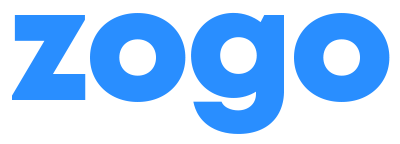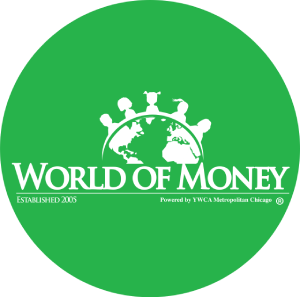Bottom line: Zogo is a fun financial literacy app that pays you to learn. This educational resource can help users better manage their money and make smarter financial choices.

Full Zogo review
Pros
- Get paid to learn
- Features more than 800 modules and a wide range of financial topics
- Learning modules include real-world examples
- Lots of gift card choices
- Get rewarded for referring friends
- Zogo partners with more than 200 financial institutions in 50 states
Cons
- Some financial topics may not interest all age groups
- Custom rewards aren't available to everyone
At a glance
| Rewards | 0.001%; 5,000 points = $5 gift card |
| iOS app rating | 4.8/5 stars |
| Android app rating | 4.6/5 stars |
| Cost | Free |
What is Zogo and how does it work?
Zogo is a fun financial literacy app that pays people to learn. Created with Gen Z users in mind, the app was developed to teach teens and young adults more about finances, as financial education is often missing in schools.
Users work through a series of modules, each with a different financial topic like taxes, insurance, savings, and investments. The short and quick modules allow you to absorb bite-size chunks of information.
As you begin a learning module, the app will present you with flashcards to learn. Then, you'll answer trivia questions based on what you just read. When you answer questions correctly, you earn pineapples. These pineapples can later be redeemed for gift cards from popular retailers like Target, Nike, Amazon, Best Buy, GameStop, and Starbucks.
In addition to the quiz-style learning method, the app has a daily Pineapple Party. During these parties, you can answer more questions and earn more pineapples. Referring friends and family to the app is another way to earn pineapples.
Apps like Zogo can help you learn more about personal finance. Our detailed Zogo review will help you decide if this is the right financial literacy app for you.
Top perks
Get paid to learn
There are many apps out there that offer educational content, but most of those apps don't pay you to learn. Zogo pays you to learn about financial matters. It's a win-win because you can enjoy the rewards and use the knowledge that you gain to make smarter money decisions.
More than 800 modules and a wide range of topics
Zogo is full of fun learning opportunities. With over 800 modules full of educational content, people will learn plenty of new financial knowledge. The app features various financial topics, including insurance, retirement, taxes, savings, debt repayment, credit cards, and home buying.
Learning modules include real-world examples
The app's modules feature real-world examples, allowing people to connect with the financial topics they're learning. Some examples include showing the costs of a visit to the hospital with health insurance vs. without insurance, explaining the total cost of a loan with two different interest rate options, and showing how different car insurance deductible amounts will financially impact a driver who gets into an accident.
Many gift card options
As you work through the app's content, you can redeem pineapples for gift cards. Options include popular retailers like Best Buy, Target, Barnes & Noble, Starbucks, and GameStop. There's something for everyone.
Get rewarded for referring friends
Zogo will also reward you for referring your friends and family. For each user that signs up with your unique code, you'll earn 1,000 pineapples after they verify their email and complete at least three modules.
Zogo partners with more than 200 banks and credit unions in 50 states
If your financial institution is a partner, you can download their co-branded app version of Zogo. Banks and credit unions offer customized learning modules to teach users about their banking products and services. Using your financial institution's version of the app also allows you to cash out your pineapples for custom rewards, like cash deposits to your bank account.
What could be improved
Some financial topics may not interest all age groups
While this app is targeted toward Gen Z, not all content may interest users. For example, content focused on saving money, getting a job, and opening a bank account may interest high schoolers more. On the other hand, topics like getting a credit card, filing taxes, and starting investing may be more exciting and relatable to college students and young adults.
Custom rewards aren't available to all users
While Zogo's custom rewards can be fun and exciting, this feature isn't available to all users. Custom rewards are only available in co-branded apps, not the standalone Zogo app.
An example includes cash rewards direct deposit into a partnering bank's bank account. That means if your bank isn't a partner, you'll be limited to only earning gift cards -- or you'll need to open a new bank account with a partnering financial institution and use their version of the app to access these custom rewards.
Alternatives to consider
If you prefer an app that teaches through video content: World of Money is an alternative financial literacy app for all ages. This app teaches primarily through video lessons. The content is organized by age level and the person speaking in the video is a similar age as the intended audience, so it's like you're watching a peer talk about finances. This helps to keep the content age-appropriate and the lessons more interesting. But you may want to stick with Zogo if you want to earn rewards, as there are no financial incentives for using World of Money.

If you want an app that focuses on learning about investing: Investmate is an alternative that focuses specifically on investing topics. The app provides educational content for beginners and those who want to advance their trading knowledge. But you may want to stick with Zogo if you prefer to learn about a wide range of financial topics.

What are the costs?
The Zogo app is free to use.
This app is right for:
Zogo is an excellent financial literacy app for people who want to improve their financial knowledge and get rewarded for learning. Teens and young adults can use this app to fill any gaps in their financial knowledge while making learning more fun and exciting.
FAQs
-
No, Zogo is free to download and use.
-
As you navigate the various modules and answer questions correctly, you'll earn pineapples, which are like points. You can also earn pineapples by referring friends and answering daily Pineapple Party quizzes correctly. You can redeem your pineapples for gift cards through the Zogo marketplace. You'll need 5,000 pineapples to redeem for a $5 gift card at a participating retailer.
-
Through its educational content, Zogo helps users learn more about essential personal finance topics like how to build credit, how to open a bank account, the importance of saving, how to buy a car, and how to file taxes. It's an excellent learning app for anyone who wants to improve their personal finance knowledge to make more informed money choices.
We're firm believers in the Golden Rule, which is why editorial opinions are ours alone and have not been previously reviewed, approved, or endorsed by included advertisers. Motley Fool Money does not cover all offers on the market. Motley Fool Money is 100% owned and operated by The Motley Fool. Our knowledgeable team of personal finance editors and analysts are employed by The Motley Fool and held to the same set of publishing standards and editorial integrity while maintaining professional separation from the analysts and editors on other Motley Fool brands. Terms may apply to offers listed on this page.